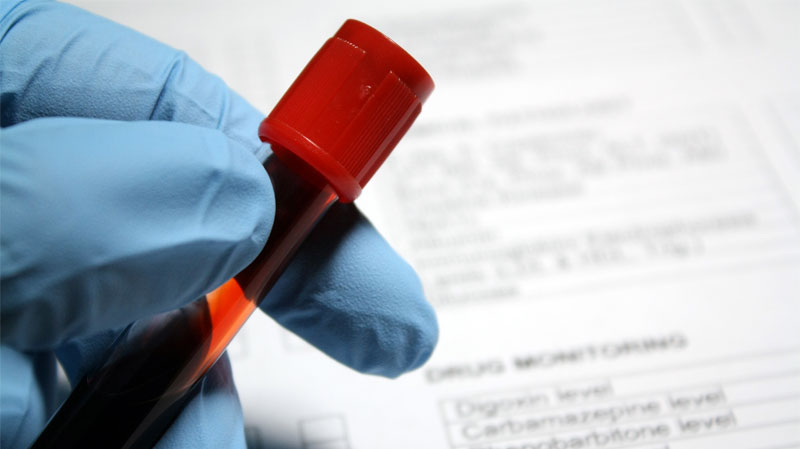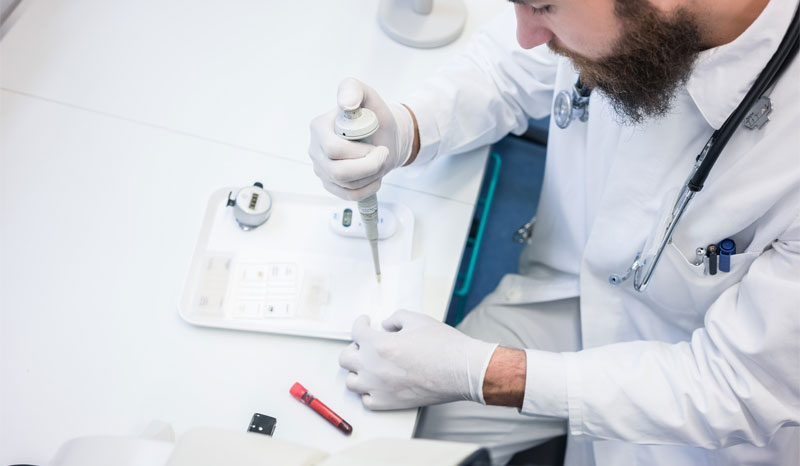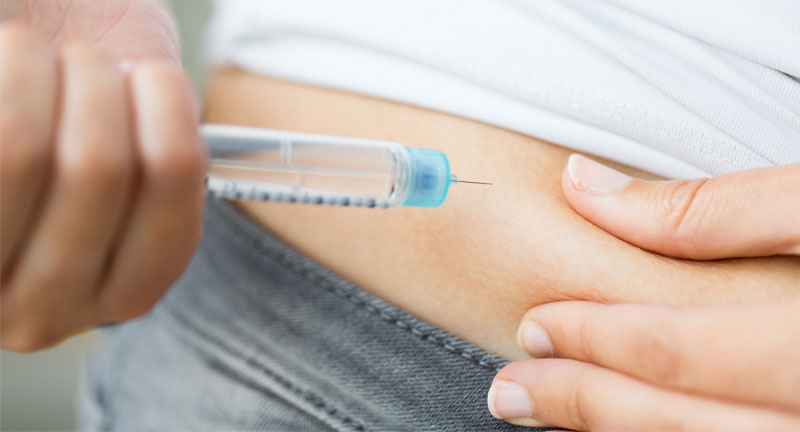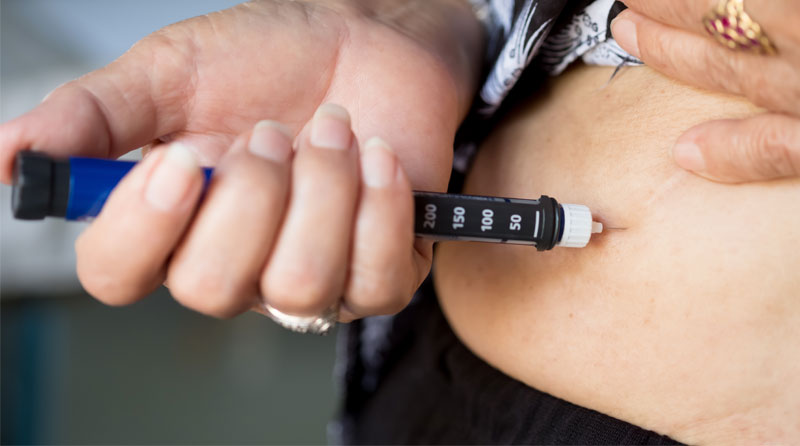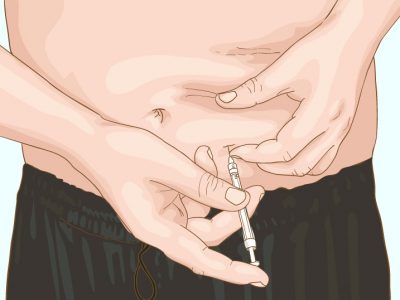- Home
- Growth Hormone
- Growth Hormone
- Growth Hormone Deficiency
- Growth Hormone Therapy
- Growth Hormone Injections
get startedThe Most Effective Hormone Replacement TherapiesWhat Tests Are Needed Before Starting Growth Hormone Treatment?
- In order to obtain a prescription for growth hormone therapy, you need to take some specific growth hormone tests.
- You doctor will determine how to best test your growth hormone output depending on your age, weight, and presenting symptoms
- Any adult who is over 40 and experiencing fatigue, weight gain, and sexual health issues, may be suffering from age-related growth hormone deficiency.
Before you can start any kind of growth hormone treatment you must have your growth hormone levels tested. Legitimate growth hormone therapy can only be obtained with a doctor’s prescription. A doctor can only legally give you a prescription for growth hormone therapy, if you have been diagnosed with a growth hormone deficiency, or GHD. Specialized blood tests are required for an accurate diagnosis of GHD, before you can start on growth hormone therapy. There are a number of ways to test for growth hormone deficiency in adults, however, they all start with drawing blood.
Since HGH levels in your blood rise and fall during the day, and vary from day to day, a test that simply measures the presence of HGH in your blood is not adequate enough to achieve a diagnosis of growth hormone deficiency. More sophisticated testing is required.
The way we test for growth hormone deficiency in adults is to use what are known as “stimulation tests.” Rather than testing for the presence or level of growth hormone in your blood at any given time, HGH stimulation tests introduce a medication that is supposed to stimulate your pituitary gland to release growth hormone. Similarly, a test that stimulates the release of another hormone, related to growth hormone, known as IGF-1, may also be used.
These growth hormone stimulation tests may be used alone or in combination. In any case, once the stimulant is introduced, your blood will be drawn to see if your body reacted as it should, and released the right amount of growth hormone.
You can only get a prescription for growth hormone therapy once you have been diagnosed with a growth hormone deficiency, or GHD. Specialized blood tests are required for an accurate diagnosis of GHD.
When Should I Have a Growth Hormone Test?
You should see your doctor for a growth hormone test, as soon as you think you are exhibiting symptoms of a growth hormone deficiency. Growth hormone deficiencies occur in both children and adults. In either case, growth hormone replacement therapy is used to treat growth hormone deficiencies.
In children, the first sign of GHD is slower than normal growth. Growth hormone deficiencies in adults will not impact stature, but there are a number of other symptoms that are common in adults, these include:
- A tendency to weight gain, particularly belly fat
- Often feeling fatigued, slow, or lethargic
- An overall feeling of lack of energy and enthusiasm
- Reduced sexual function & interest
- Thinning hair – baldness
- Hair loss, or thinning hair
- Liver spots, dry thin skin
- Suppressed immune system, easier to get sick, harder to heal or recover
- Memory loss and other cognitive difficulties
- Bone loss and bone weakness
- Reduced bone density (propensity to fractures)
- Depression, anxiety and other emotional changes
- Increase in LDL cholesterol (bad cholesterol)
- Increased heart disease
If you are a man or woman over 40, and are experiencing any of the above symptoms, it is a good idea to look for a doctor who can test your growth hormone levels.
Since HGH levels in your blood rise and fall during the day, and vary from day to day, a test that simply measures the presence of HGH in your blood is not adequate enough to achieve a diagnosis of growth hormone deficiency. Other blood test including levels for IGF-1 will always be included.
How Do We Treat Growth Hormone Deficiencies?
If your growth hormone blood test indicates a diagnosis of adult onset growth hormone deficiency, the most effective treatment is a prescription for growth hormone injections. The only way to receive authentic growth hormone therapy is with a doctor’s prescription, and the only way prescription growth hormone therapy is given, is with an injection. Any product or supplement that claims to be HGH, or contain HGH, that you can purchase without a prescription, or is taken in any form other than via an injection, is not HGH.
Prescription HGH shots are available under many names. Some of the most common growth hormone injections prescribed to treat GHD are:
- Genotropin
- Omnitrope
- Norditropin
- Humatrope
- Saizen
These prescription growth hormone injections differ in their available dosages, costs and their delivery methods (standard syringes/needles vs metered dose injector pens). Your medical professional will decide which HGH injection formulation is right for you.
Regardless of which HGH medication you are prescribed, growth hormone therapy is the safest and most effective form of treatment for a diagnosis of adult growth hormone deficiency.
What Kind of Results Could I Expect From Growth Hormone Therapy?
If you HGH blood tests have revealed that you have adult growth hormone deficiency, you can expect to see many benefits from growth hormone therapy, such as increased muscle mass, loss of fat, and renewed energy.
For men and women who have been diagnosed with age-related GHD, growth hormone injections have been found to:
- Improve fat metabolism, resulting in lower body mass index (BMI)
- Increase energy and stamina
- Provide more restful sleep
- Improve memory and other cognitive functions
- Decrease anxiety and return life to more of an “even keel”
- Increase libido and improve sexual performance
- Strengthen bones, and fight osteoporosis
In addition, HGH injections can also improve heart health by helping to reduce cholesterol, and open blood vessels that have been clogged with arterial plaque. In this way, growth hormone therapy can lower your risk of developing cardiovascular disease, and, although difficult to measure, may lengthen your life!
How Do Growth Hormone Injections Work?
It is an unfortunate fact of life, that as we age, we lose HGH and other vital hormones such as testosterone. As the levels of these critical hormones drop, all bodily processes slow down and become less efficient. Much of the symptoms we think of as “aging,” are really a reflection of declining levels of testosterone and HGH.
Growth hormone therapy can return your HGH to more youthful levels, which can slow, and in some cases, even reverse, the debilitating effects of age related growth hormone deficiency.
As the level of HGH in your body increases, your ability to repair and replace old and dying cells increases. Your liver is stimulated to release more IGF, which gives cellular metabolism an additional boost. These two actions combine to return your strength, energy and ability to burn fat and build muscle, to what they were when you were younger. This is how growth hormone therapy works to make you look and feel younger and stronger, and help turn back the clock.
Is Growth Hormone Therapy Right for Me?
The only way to determine if you are indeed a candidate for growth hormone therapy is with a growth hormone blood test and blood test for IGF-1. Once your hormone levels have been tested, and you have been diagnosed with a growth hormone deficiency, growth hormone therapy is the right choice to make. If the results of your blood test indicate that you are growth hormone deficient, if you do not accept growth hormone therapy, your condition will only get worse the longer it goes untreated.
On the other hand, for adults who have been diagnosed with growth hormone deficiency, growth hormone therapy can literally provide a new lease on life.
The only way to determine if you are indeed a candidate for growth hormone therapy is with a growth hormone blood test and blood test for IGF-1.
read this next
How Do I know If I Have a Growth Hormone Deficiency?
Human growth hormone, or HGH, is one of your body’s most critical hormones. How do you know if you have a growth hormone deficiency?…read moreWhat are the Medical Guidelines for Growth Hormone Deficiency in Adults
Growth hormone deficiency (GHD) is a recognized clinical condition by the medical establishment. GHD in adults most commonly persists from an untreated or ineffectively…read moreSermorelin
A diagnosis of growth hormone deficiency in otherwise healthy adults can lead to some unpleasant physiological and health breakdowns. Sermorelin, a chemical messenger also…read moreWhat You Need to Know About Growth hormone Injections
There are many myths and misunderstandings about human growth hormone, or HGH. Here are some of the facts you need to know about growth…read more - Growth Hormone Therapy








